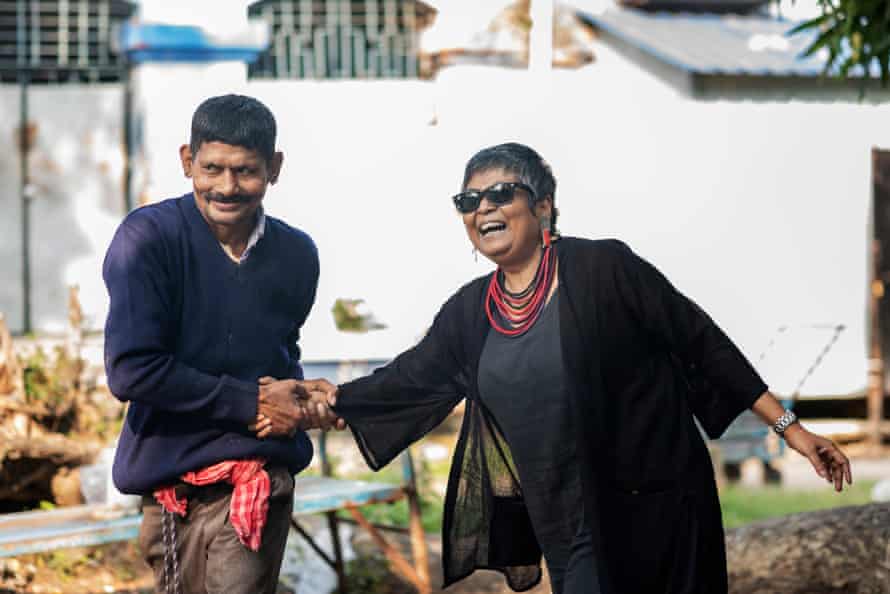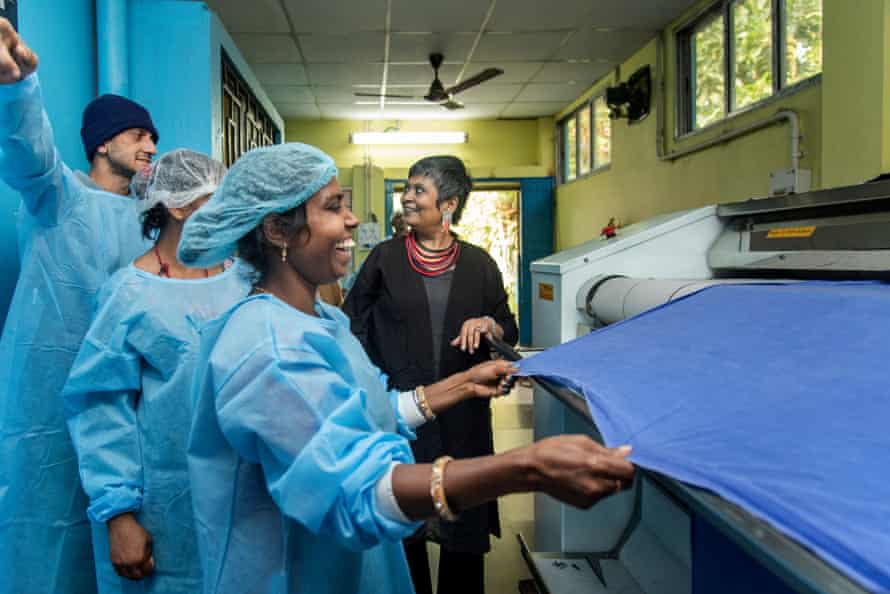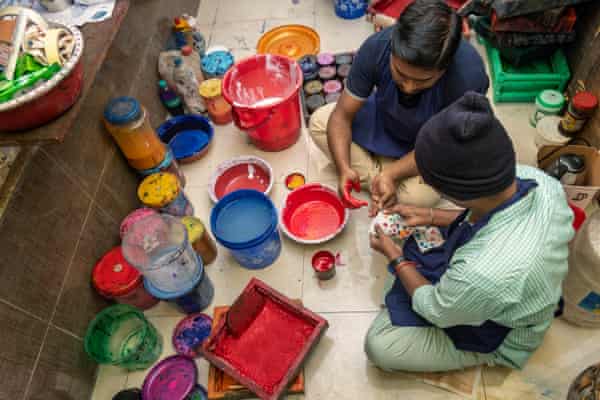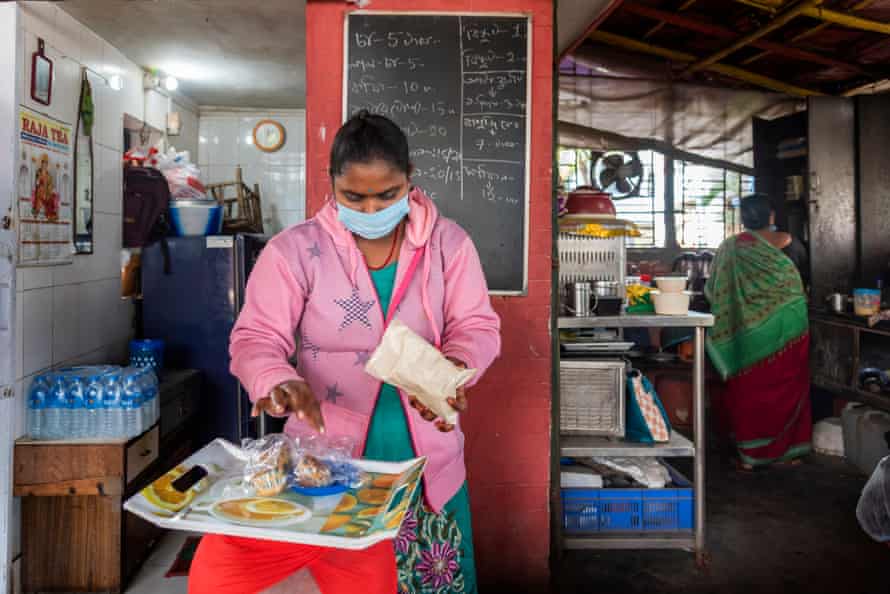‘ A development, not a breakdown’: one lady’s mission to change psychological healthcare in India
R atnaboli Ray concerns among the most affordable points of her life as an advancement. After years in a set up marital relationship in which she felt stifled and caught, her psychological health took a disastrous turn in 1997, when she remained in her mid-30 s.
” I was feeling extremely caged, I was unable to reveal myself,” she states, from her house in West Bengal, India. She explains the mental signs as like a pressure cooker breaking. “I utilized to snap, have weeping spells. I was neglectful of my young boy.”
Ray, an experienced psychologist, was operating in a personal psychological health center run by an NGO in West Bengal at the time, so she identified what was taking place to her. She was identified with an extreme state of mind condition, went through treatment and was recommended medication, which she still utilizes. After about a year and a half of treatment, her condition was more steady.
Although the degeneration of Ray’s psychological health implied she needed to resign from her task, it likewise empowered her and set her on a various course. “I acknowledged my fragility and vulnerability, and it offered me a power to speak with the authorities, whether that was my in-laws or the federal government. I discovered to speak out, which is why it was an advancement and not a breakdown.”
In her previous function, she had actually seen a few of what clients experienced in government-run psychological health centers, where care was much even worse than the kind she got in a personal center, and chose she wished to throw down the gauntlet.
” I believed we needed to do something that was various from establishing separated organizations, which resembled islands,” she states. “I had this concept of going into a public psychological health medical facility and bringing systemic modification.”

Conditions in public psychological health healthcare facilities at the time were “horrible”, she keeps in mind. “Women were overdrugged, no one might go house. The wards were drab. The conditions were abysmal. Care was really bad,” she states. “The nursing personnel were similar to those in One Flew Over the Cuckoo’s Nest. There were a great deal of human rights infractions.”
Patients went on appetite strike since the food was so bad, it was typical for them to be entirely naked and have lice, a sign of the unclean conditions. Shackling clients to limit them was prevalent, as were privacy cells where clients were secured in singular seclusion when they were believed to threaten.
Ray thinks conditions were even worse for ladies than for guys. Little research study has actually been done on the occurrence of psychological illness or centers in West Bengal, however in 2016 the National Mental Health Survey of India stated 13% of the state’s population were coping with conditions such as stress and anxiety, tension and schizophrenia, while research study from 2019 discovered females in state psychiatric centers are most likely than guys to remain there for several years. Lancet research study, covering 1990 to 2017, revealed a somewhat greater rate of depressive conditions and suicide amongst ladies than guys throughout India. It concluded this “might be associated with gender discrimination, violence, sexual assault, antenatal and postnatal tension, and unfavorable socio-cultural standards”.

Ray concentrated on assisting female clients since she knew the effect of social concerns and violence versus females in India. “As a feminist and human rights activist, suicide is not simply a psychological health problem. It’s an intersectional problem and has substantial social factors,” she states.
Ray approached the state’s human rights commission, asking to attend to overcrowding in health centers. She was allowed to operate in Kolkata Pavlov medical facility, the biggest federal government psychological health medical facility in West Bengal, in 2000.
She would get here every early morning at 8am, go to a female ward and gather 6 ladies. They would rest on mats outside, sing, chat, produce art or play, and Ray would listen to their stories. One client had actually been there for 3 years after leaving her household for her enthusiast, who then deserted her. She informed Ray she wished to go back to her kids. Ray assisted her, in addition to more than 20 other ladies, to go house in her very first year of working there. “It was a substantial turning point for the federal government,” she states.

At initially, her existence at the health center was viewed as a danger by some. One day, early in her work, Ray states 4 officers operating at the medical facility locked her as much as attempt to daunt her. It wasn’t till 6 hours later on that individuals heard her weeps for aid and let her out. Ray states that the environment in the health center has actually altered and they now have a “equally considerate collaboration”. She still deals with risks for her work from in other places and typically gets confidential letters filled with sexual insults. In 2019, she was charged with sedition in addition to other popular voices in India for composing a letter to the prime minister voicing issues about mob lynching. Charges were later on dropped.
Ray has actually gone on to operate in all the medical facilities in West Bengal and, in 2000, established Anjali, which, as part of its work to modernise treatments and end preconception surrounding psychological health, offers abilities training to clients to assist reintegrate them back into society. This consisted of establishing a launderette in Kolkata Pavlov health center, which clients are paid to run. There is likewise a pastry shop and little canteen on the healthcare facility facilities, along with a block printing studio. There are strategies to broaden the job to other healthcare facilities.
Ray was born in 1961 into a middle-class and informed household with liberal worths. “I matured listening to the Beatles. I was motivated by the civil liberties motion. I enjoyed rock ‘n’ roll. I utilized to go hiking,” she keeps in mind. She studied for a masters in medical psychology and participated in a set up marital relationship when she remained in her early 20 s. She and her other half had a kid, prior to the set separated and after that got separated. She states: “[In West Bengal,] you do not get wed to an individual, you wed the whole household. There was a big quantity of pressure. I understood after getting wed that it was a patriarchal setup.”

Throughout her profession, Ray, now 60, has actually worked to clarify a few of the human rights abuses in healthcare facilities. She has actually effectively lobbied for modification in the law, consisting of challenging making use of holding cell and electroshock treatment without approval in West Bengal. In 20 years, she has actually seen conditions enhance which there are now more organisations that promote for the rights of psychological health clients.
But for Ray, there’s still much to do. In a nation with a population of more than a billion individuals, continuing preconception and a scarceness of resources devoted to psychological health, modification is hard. Ray acknowledges: “I will not have the ability to see total modification in my life time, due to the fact that it’s a constant procedure.”
In the UK and Ireland, Samaritans can be called on 116 123 or e-mail [email protected] or [email protected]. In the United States, the National Suicide Prevention Lifeline is at 800-273-8255 or chat for assistance. You can likewise text HOME to 741741 to get in touch with a crisis text line therapist. In Australia, the crisis assistance service Lifeline is 13 1114 Other worldwide helplines can be discovered at www.befrienders.org
In the UK, the charity Mind is offered on 0300123 3393 and Childline on 08001111. In the United States, Mental Health America is readily available on 800-273-8255 In Australia, assistance is readily available at Beyond Blue on 1300 22 4636, Lifeline on 13 11 14, and at MensLine on 1300 789 978
Sign up for a various view with our Global Dispatch newsletter– a roundup of our leading stories from around the globe, advised checks out, and ideas from our group on essential advancement and human rights problems, provided to your inbox every 2 weeks:
Global Dispatch– please examine your spam folder for the verification e-mail
Source: ‘ A development, not a breakdown’: one female’s mission to change psychological healthcare in India